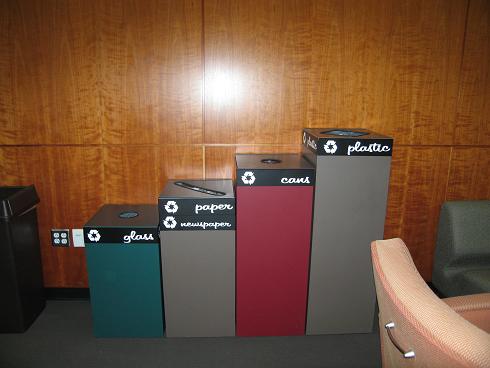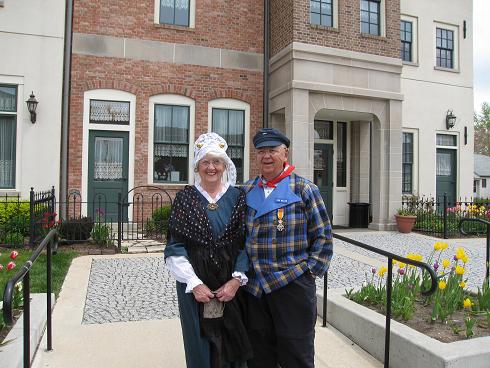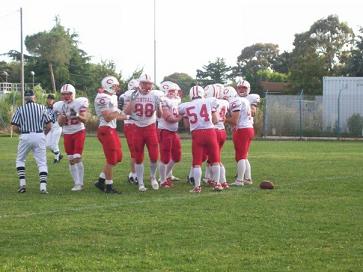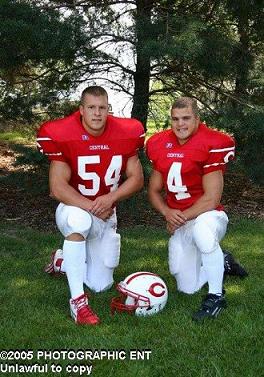Today one of our errands1 will be to return pop cans and bottles2 to our city can and bottle recycling center3. We usually wait until we have one or two large plastic garbage bags4 filled with the cans and bottles, and then take them there. We need to make the trip soon.
When we get to the recycling center, we have two choices as to what to do with the cans and bottles. Either we can take them inside to be counted by a worker and given back the deposit5 we paid at the super market when we purchased the drinks, or we can just leave them outside in a big box labeled “Donation6 for C.O.C. 7” This means that instead of our collecting the money for ourselves, it will go to The Christian Opportunity Center7, a special private school for handicapped8 people located here in Pella. It is always in need of extra funds9 for carrying on its work with the severely10 handicapped people it serves. Our other materials that need recycling were picked up by the city this morning after we had put the paper, tin cans, and non-redeemable11 bottles in the recycle box12 in front of our house.
There has been a resurgence13 of “the battle of the bottle, part of the war on waste14.” In the 1970s in the U.S. there was interest in cleaning up the environment15 during “Earth Day16” by picking up the waste paper, cans and bottles which littered17 the roadsides nearly everywhere. Most state legislatures18 and larger city councils19 wrestled20 with the problem, and all agreed that there must be some monetary incentive21 to keep the roadsides clean, and to save both glass and metal wasted in bottles and cans.
A similar problem had been solved patriotically22 during World War I and the 1940s by establishing collection centers for paper and waste metal23, letting those who wished to do so collect waste paper and metal, and be paid a small sum by the collection center when these were recycled. Any person who was in the Boy Scouts24, a school club, etc. at this time knew how this worked. With “forced labor25” and a few cents per pound paid for paper and metal, the country had a successful recycling program during that period, and the clubs and groups built a modest treasury26 for their activities. It was a win-win situation27 but in a few years, the “war effort” was no longer a valid excuse28, and groups of young people found better ways to raise money.
Within a few years the “throw away society29” was again wallowing30 in its own wastes, and it became evident that a better recycling system was needed. First came city ordinances31 and state laws requiring grocery stores and other dealers in bottles and cans to collect the used containers and return them to waste collection centers. Eventually private redemption centers32 replaced the collection by grocery stores so that beverage salesmen did not have to bear the brunt33 of the work and smell!
Whatever the problems, it was true that this process, while flawed34, resulted in many fewer cans and bottles being dumped35 along roadsides and empty lots36. In fact, many regions organized clubs and groups of concerned citizens “adopted a few miles37” of a highway right of way and provided weekly collection of the waste items thrown there. Within the past year or two, most states have been looking for more equitable38 means of recycling cans and bottles. Attempts to force stores to collect cans and bottles have found strong resistance39. Some states, including Iowa, have tried legislation40 to raise the deposit fee to 10 cents per can and require machines at stores where cans and bottles can be recycled. We are in favor of the 10 cent fee, but this is still a controversial41 issue.
The battle of the bottle and the war on waste will continue. New efforts may succeed, but likely will do so only when the consumer is willing to pay the real cost of packaging42 and containers and to use systems that are effective in improving the environment while spreading the cost broadly among users. (703words)
Notes:
1. errands: short trips from home to complete small tasks, such as shopping, mailing packages, etc. (跑腿,差事).
2. pop cans and bottles: containers in which soft drinks are sold (饮料罐/瓶). Such drinks are referred to as pop in the Midwest, but soda in the East. In California the term “coke” often refers to all soft drinks.
3. recycling center: a place where waste items such as cans, bottles, paper or metal may be taken for reprocessing and reuse (回收利用中心,空罐头、空瓶子、废纸或废金属在那里经过处理可以重新使用).
4. plastic garbage bags: very large bags that can contain large quantities of waste items (塑料垃圾袋).
5. deposit: the additional money which one pays when purchasing a beverage in a can or bottle (押金,买罐装或瓶装饮料时额外付的压瓶费).
6. donation: a gift, usually for some charitable cause or organization (捐款).
7. C.O.C. / The Christian Opportunity Center: a private school and residential campus in Pella, Iowa, where mentally and physically disabled persons are trained to function in society, and especially to become self sufficient if possible (基督教机会中心,是派拉的一所私立住宿学校,残疾人在该校接受培训,使他们能够在社会上发挥作用,尤其是有可能成为自食其力的人). This private school serves clients from the entire region and is supported by private contributions and gifts.
8. handicapped: disabled in some manner, either physically or mentally (有生理缺陷的,弱智的).
9. extra funds: 额外的经费
10. severely: very badly or to a great degree (严重地).
11. non redeemable: unable to be exchanged for money (不能退换钱的). Many juice bottles for which no deposit is required are unable to be exchanged for money.
12. recycle box: a strong, plastic box provided to city residents who pay a monthly fee for use of the box to place recycled items picked up at the front of the residence (回收箱,一种很结实的塑料箱供居民放可回收物品,使用回收箱居民每月要付费).
13. resurgence: the reappearance and growth of something that was common in the past (再现,复苏).
14. “War on waste”: active participation in solving the waste problem for a society or community (解决废物的战争).
15. environment: 环境
16. “Earth Day”: the day set aside by the U.S. government to give attention to improving the environment of the “Earth,” the planet on which we live (地球日,这是美国政府为了改善自己居住的地球环境设定的).
17. littered: scattered widely over a given area (…扔得到处都是).
18. State Legislatures: the governing bodies made up of elected officials which make the laws for the state where one resides (州立法机关,制定所在州法律的机构,其成员由选举产生).
19. City Councils: the local governing bodies for a town or city (市政委员会).
20. wrestled: struggled with, or worked hard to achieve a given goal (费力地处理、解决).
21. monetary incentive: the use of money to make something more attractive or desirable to a person or group (用钱进行刺激、鼓励的措施).
22. patriotically: 爱国地
23. waste metal: metal that is no longer needed, is broken, or can be parted with (废金属). During both big wars citizens were urged to donate metal so that it could be recycled into ammunition, weapons etc.
24. Boy Scouts: an organization of boys (童子军). There is also a Girl Scouts organization.
25. “forced labor”: 所谓强制劳动. Members of the scouts, school clubs etc., knew it was their duty to collect metal and other recyclable materials; consequently, the work would be done. Many times there were competitions between groups, forcing the individual members to try even harder to collect much waste material
26. modest treasury: a small amount of money that could be used for the activities of an organization (小金库). If enough members turned in recyclable materials, the treasury could build up fast and support numerous activities for the group.
27. win-win situation: an event in which everyone involved gains something positive (双赢局面). In this case, the waste material was disposed of (a winning situation) and the organization received its needed funds for its activities (also a winning situation). This is a popular positive saying at the present time.
28. valid: effective, correct, appropriate, etc. in a given case (有效的,合理的).
29. “throw away society”: the term used to describe a wasteful society or group of people (一次性使用的社会,指非常浪费的社会或群体).
30. wallowing: taking unrestrained delight in something, degraded or degenerate activity (沉湎,沉迷).
31. city ordinances: laws passed by the City Council, pertaining only to that city (市政条例、法规).
32. private redemption centers: 私营废瓶收购中心
33. bear the brunt: take on the burden (承担后果).
34. while flawed: although it was not perfect or with errors (尽管不完美).
35. dumped: carelessly dropped or thrown (丢弃).
36. empty lots: 空的停车场
37. “adopted a few miles”: took on the responsibility for cleaning up a given area along a roadway (负责几英里的清洁任务).
38. equitable: dealing fairly and equally with all concerned (公平的,公正的).
39. resistance: opposition, objection or unwillingness to participate or to agree with something (阻力).
40. legislation: 法律,法规
41. controversial: subject to argument, dispute or disagreement (有争议的).
42. packaging: wrapping, enclosing or covering, as in gift wrapping, etc. (包装).




